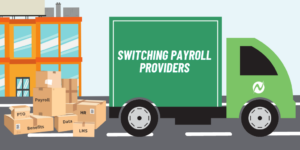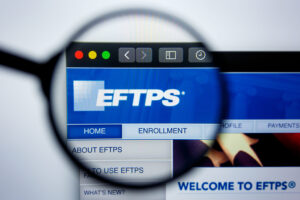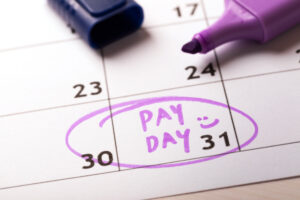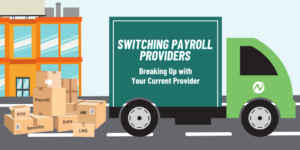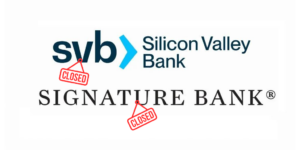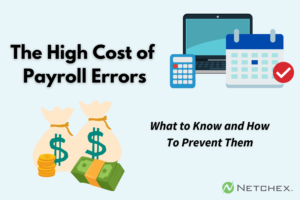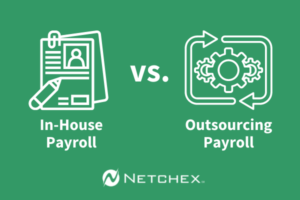A Comprehensive Guide to Switching Payroll Providers
I. The importance of improving your payroll process II. Signs that it’s time to switch payroll providers III. Payroll migration: Is it hard to switch payroll providers? IV. When is the best time to switch payroll providers? V. How to choose a new payroll provider VI. Breaking up with your current provider VII. Avoiding common […]
Read ArticleWhy 2024 is the Year You Invest in Payroll Software
We all put off things we should do because they seem difficult or time-consuming. The end of one year and the start of a new one gives us the chance to tackle these much-maligned tasks with a clear head and renewed drive. If the past several years has taught us anything, it is that companies […]
Read ArticleAn HR Guide to the Electronic Federal Tax Payment System (EFTPS)
Have you ever felt like business taxes should be easier to pay and manage online? The Electronic Federal Tax Payment System (EFTPS) is a free government tool for efficiently scheduling payments. The U.S. Department of the Treasury provides EFTPS as a secure way to send tax payments to the IRS any time. Not just during […]
Read ArticlePayroll Frequency: Deciding What’s Best for your Company
Payroll has changed a lot with HR software and automation. Some business routines like payroll frequency have been guided by the limits of manual payroll, not necessarily what’s best for the company. Weekly, or even daily payroll, is popular with younger workers, but it makes it harder for workers to budget for major expenses like […]
Read ArticleWhat is Shift Differential Pay and How Do You Calculate It?
While many people work a typical 9-to-5, the workday does not look the same for everyone. Businesses that operate in the day and at night require employees to work evening, late night, and even overnight shifts. How can you get employees to work these undesirable hours? For many businesses, shift differential pay is an effective […]
Read ArticleSwitching Payroll Providers: Breaking Up with Your Current Provider
Switching payroll providers requires significant planning and prepping, but it doesn’t have to be difficult. As we showed in our previous blog, when the time comes to switch payroll providers, you’ll notice the signs. Payroll migration isn’t overly difficult with the right supporting you, and you can switch payroll providers at any time during the […]
Read ArticlePay Transparency: What it Means for HR and How to Prepare
Admittedly, new regulations and social change can be disruptive for HR policies and routines. Progress may be slower than most like, but equitable pay might help reduce one form of inequality. Pay transparency is already picking up steam across America. It’s one of those issues where changing social norms may arrive before new legislation affects […]
Read ArticleNetchex Not Impacted by Silicon Valley Bank or Signature Bank Closures
Over the course of three days, financial regulators shutdown both Silicon Valley Bank (Friday, March 10) and Signature Bank (Sunday, March 12). These consecutive closures are believed to be the second and third largest bank failures in U.S. history. Netchex does not use Silicon Valley Bank or Signature Bank to fund our clients’ payroll services […]
Read ArticleThe High Cost of Payroll Errors: What to Know and How to Prevent Them
A recent study about payroll and payroll errors by Ernst & Young, a multinational accounting firm, surveyed over 500 companies (from 250 to 10,000 employees) and found that: When HR processes are handled manually, nearly every step of payroll creates an opportunity for mistakes. As identified by the Ernst & Young study, here are just […]
Read ArticleWhat is Daily Pay? The Benefits of Flexible, On-Demand Payroll
How does your company support employees with their finances? For so many workers, unexpected car repairs and medical bills make it difficult to wait until next payday. More than half the country is living from paycheck to paycheck, including 30% of people making $250,000 or more. When it comes to payroll, a little thing like […]
Read ArticleEnsuring Payroll Accuracy and Compliance: Address, Compensation and Tax Verification
Momentum for remote work has been building for years. Then, the pandemic dispersed employees like never before. Able to live anywhere, employees can relocate at the drop of the hat and often without notifying their employers. This can cause serious compliance issues. 93% of HR professionals were confident they know where the majority of their […]
Read ArticlePayroll Processing Done Right: In-House vs. Outsourcing
How to handle payroll processing is a question all businesses must consider. Small business owners might be able to manage payroll themselves, but it takes time and is susceptible to errors. Medium and large businesses can justify hiring a dedicated HR professional, but time, errors, and cost are still less than ideal. The right software […]
Read Article
